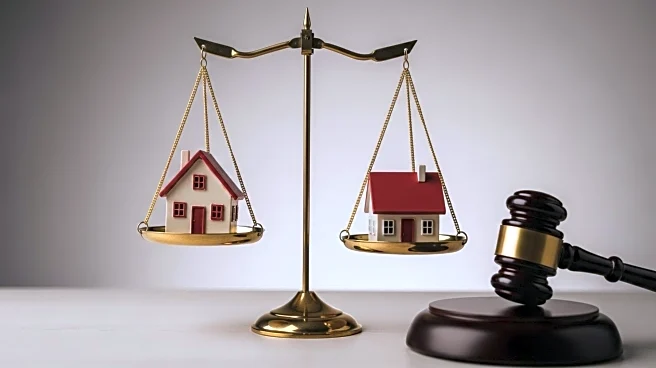What's Happening?
President Trump has signed Executive Order No. 14321, which aims to address crime and disorder by forcibly committing unhoused individuals experiencing mental health crises or substance use disorders to state psychiatric hospitals. This move has been criticized for conflating criminalization with care, as it may increase the number of people entangled in the criminal legal system. The order encourages states to use involuntary commitment facilities, which are often likened to prisons due to their restrictive nature and lack of effective treatment. Critics argue that this approach is ethically and legally questionable, as it fails to provide the necessary care and support for those in need. The administration has also cut funding for social programs that have been effective in reducing crime and homelessness, such as addiction and mental health services, Housing First programs, and harm-reduction strategies.
Why It's Important?
The executive order has significant implications for public policy and social welfare in the U.S. By shifting focus from care to criminalization, the administration risks exacerbating issues related to homelessness, mental health, and substance use disorders. The reduction in funding for proven social programs could lead to increased incarceration rates and further strain on the criminal justice system. This approach may also undermine efforts to address the root causes of homelessness and substance abuse, potentially leading to higher rates of recidivism and social instability. The decision to cut Medicaid funding could leave millions without access to essential mental health and substance abuse treatment, further marginalizing vulnerable populations.
What's Next?
State and local governments have the option to reject the federal government's push for involuntary commitment policies. They may choose to continue supporting community-based care, Housing First initiatives, and harm-reduction efforts, which have been shown to be more effective in addressing homelessness and substance use disorders. The administration's policies may face legal challenges and pushback from advocacy groups and civil society organizations. The broader societal debate on how to best address homelessness and mental health issues is likely to continue, with potential implications for future policy decisions and funding allocations.
Beyond the Headlines
The executive order raises ethical and legal concerns about the treatment of vulnerable populations. The use of involuntary commitment facilities, which often lack adequate resources and treatment options, highlights the need for a more compassionate and effective approach to mental health and substance use disorders. The decision to prioritize criminalization over care may also reflect broader societal attitudes towards homelessness and addiction, potentially influencing public perceptions and policy decisions in the long term.









